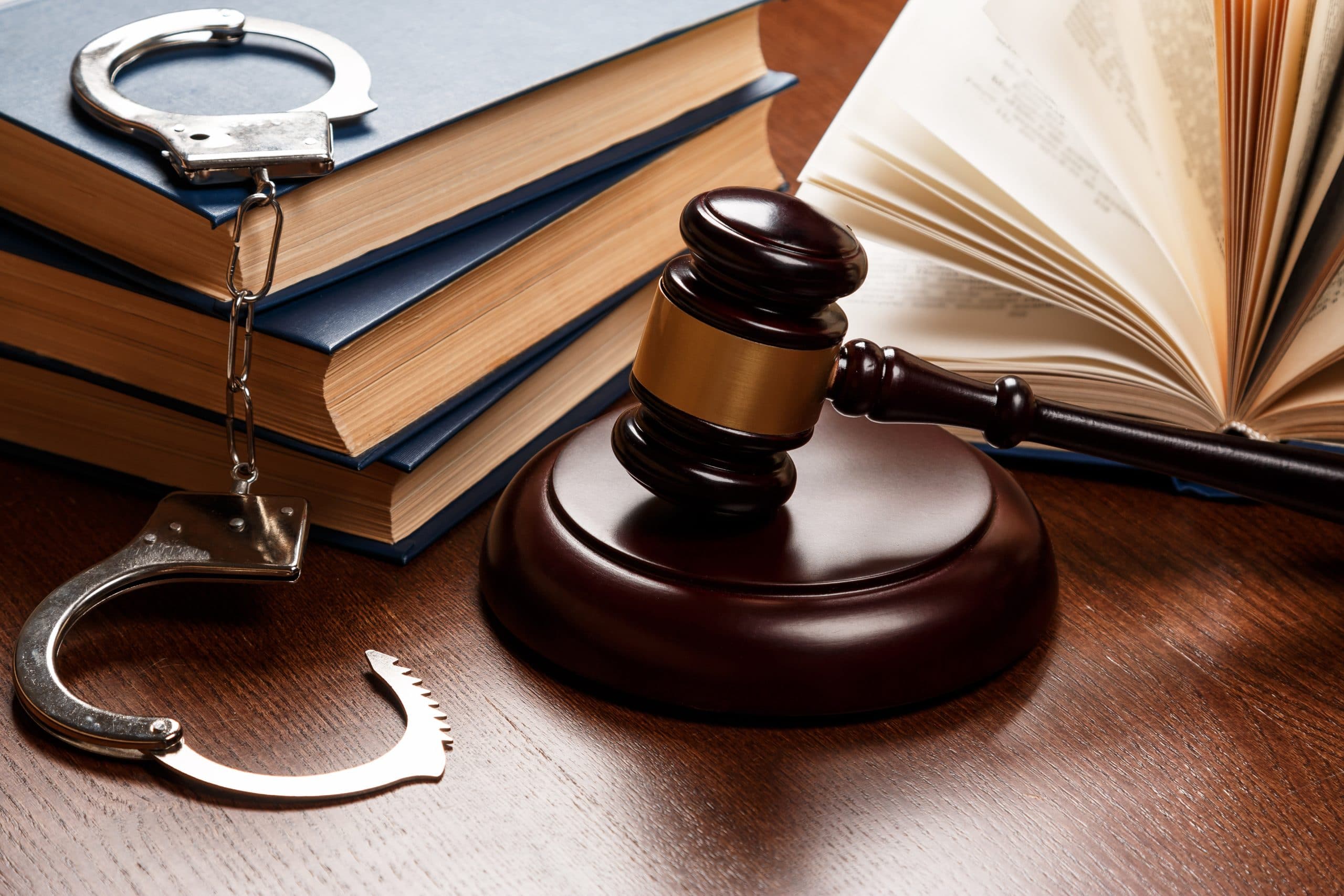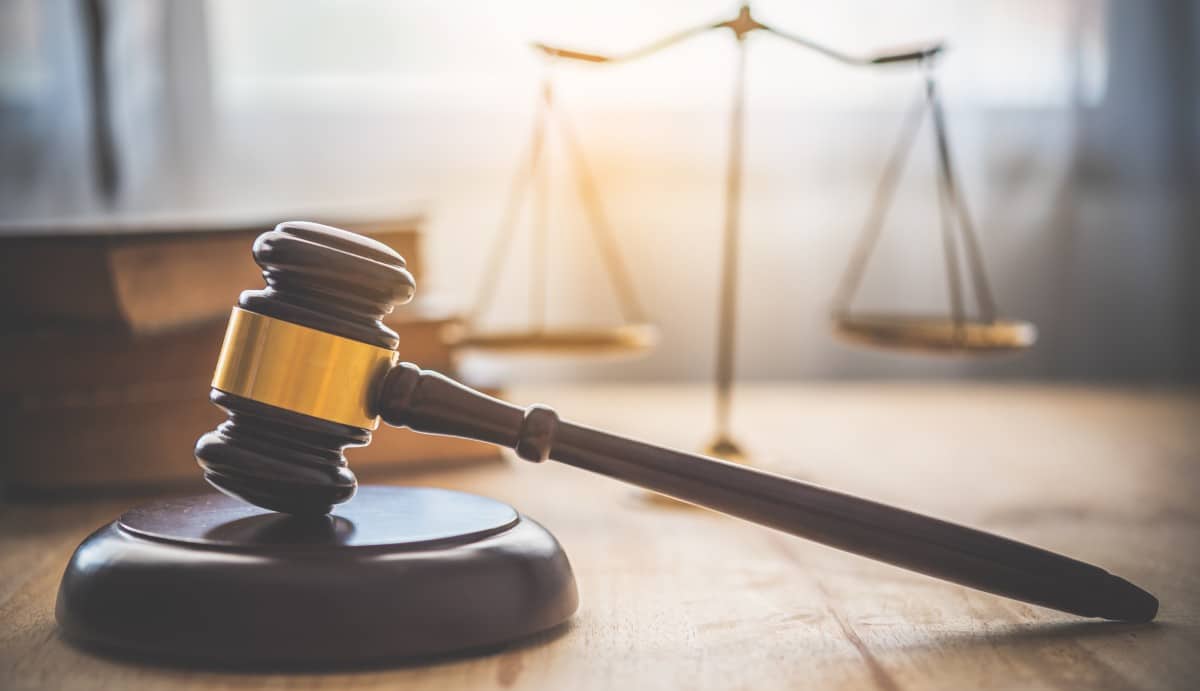
Criminal Justice in Texas: The Arrest
I’ve been arrested for an alleged crime; what happens now?
The police have spoken with you. They think you committed a crime. The next thing you know, you’re in custody and no – you are not free to leave. You’ve officially been arrested. Now what?
The first step you should take if you’ve been arrested is to call our experienced criminal defense lawyers in Killeen. At Mary Beth Harrell Law Firm, we’ve been helping folks like you for 25 years. And during this time, we’ve learned that clients – and their families – often have a lot of questions about the process itself. So, let’s talk a bit about what happens when you or your loved one is arrested.

How can we help?
- A quick rundown of what typically happens before the arrest
- What are your Miranda rights?
- What happens after the arrest – AKA, “being processed”?
- Am I entitled to bail?
- What is an arraignment?
- What happens if I resist arrest?
- Federal charges vs. Texas charges
- Do you have a criminal defense lawyer near me?
A quick rundown of what typically happens before the arrest
Before law enforcement issues an arrest, there are a few things that happen. If they “catch you” in the act, you’ll be arrested on the spot.
But if not, then the alleged crime gets reported and then law enforcement conducts its investigation. From there, the local, county, state, or federal officers will generate their report and send it to the prosecutor’s office. You will be considered “at large” because the arrest hasn’t yet been issued.
Depending on the exact nature of the case, you may be arrested then, OR it may come after a grand jury has been convened and indicted you on a felony charge. If, for example, you were out of state visiting a friend when the indictment comes down, then the chances are good a warrant will be issued (more on this in a bit) and you’ll be arrested when you get back (or even where you are; it depends.)
Now – onto the actual process of the arrest.
What are your Miranda rights?
The police are required to inform you of your Miranda rights as soon as you’re arrested. The requirements to explain your Miranda rights are based on the US Supreme Court of Miranda vs. Arizona and the Fifth and Sixth Amendments of the US Constitution. The warnings are:
- You have the right to remain silent.
- Anything you say can and will be used against you in a court of law.
- You have the right to an attorney.
- If you cannot afford an attorney, one will be provided for you.
After reading these rights, the police should ask – “Do you understand the rights I have just read to you? With these rights in mind, do you wish to speak to me?” A silent nod is not an appropriate response. “The suspect must give a clear, affirmative answer to this question” because the suspect may not understand the warnings or may not understand English. Translations of the Miranda warnings should be recorded.
Any evidence or statements obtained in violation of your Miranda rights can be excluded from being presented at your trial.
The right to stay silent is critical. Often, the police will pressure defendants into making statements that are against their interests. Some folks may even make false confessions due to intimidation, force, stress, hunger, a lack of understanding of their rights, unscrupulous interrogation methods, and a suspect’s belief a confession will result in a lighter sentence. In Texas, all custodial interrogations (federal and state) must be recorded, which can help us with your case.
What happens after the arrest – AKA, “being processed”?
After your arrest, you will normally be taken to the local police station where the booking process will take place. This process will likely include the following (which will all likely be computerized):
- Your name and the alleged crime that led to your arrest are recorded.
- Your mug shot/picture will be taken which helps identify you and your condition at the time of the arrest.
- Your personal property and clothing will be taken. These items will be returned on your release – though evidence of any crimes will likely be kept.
- Your fingerprints will be taken and entered into an FBI database and made accessible to local, state, and federal agencies.
- The police will likely conduct a full body search for weapons, drugs, and other items. These humiliating searches may be valid even for minor offenses.
- The police will check for any outstanding warrants or traffic tickets.
- Your health will be screened including blood tests and X-rays.
- You’ll be questioned about any issues that affect your safety in prison such as gang affiliations – which may or may not violate your Miranda rights.
- A sample of your DNA may be taken which will be entered in national DNA databases.
Generally, at the time of arrest, you should listen to and make sure you understand your Miranda rights: don’t say anything, don’t consent to a search of your property, don’t use social media, and – again – call our criminal defense lawyers.
If there’s a warrant
If you suspect there may be a warrant out for you at any time prior to an arrest, you should contact our experienced criminal defense lawyers. We can check with the sheriff’s office or court in the county where you live. There are also online services that can be checked. Don’t fall for any scams by bail bond services that phone or send emails about any possible outstanding warrants. If there is a warrant, our lawyers will review the warrant and discuss your legal rights. You should not go to the police in person – because if there is a warrant, you will be arrested.

Am I entitled to bail?
Bail is the security that the defendant, a bail agency, or someone on behalf of the defendant puts up to guarantee the defendant will appear at his/her court hearings. Our criminal defense lawyers represent clients at bail hearings which should occur promptly after your arrest. The bail hearing determines the terms of your bill. Factors that affect your bail eligibility include the crime charged, your ties to the community, and other factors that help convince a judge you’ll appear in court. Ideally, you are released on your own recognizance or a minimum amount of bail.
Generally, you or some person on your behalf can post/deposit cash with the court. The cash will be returned when your case is concluded.
A bail agency may post a bond guaranteeing your appearance(s) in return for your payment of 10 to 20 percent of the amount of the bail. The bail agency is obligated to pay fees and half of the total amount of the bond if you don’t appear. You do not get back the amount you advanced if you do appear. Other bail arrangements include the use of security such as a car or home, and county personal recognizance bonds may be available.
What is an arraignment?
The arraignment takes place shortly after your arrest. The judge will read the criminal charges against you and ask you how you plead to the charges. Almost always, we recommend that you plead “not guilty” at the arraignment. There are many reasons why we suggest this, such as wanting to make sure if you do ultimately plead guilty, you plead guilty to the correct charges. Often the government will charge you with multiple offenses when few may actually apply. But if you plead “guilty” at the start, you don’t get to take it back later if any of those charges could have been dropped.
In some cases, defendants may be charged with felony criminal enhancements for repeat felony offenses and habitual felony offenses. You should be advised of these enhancements at the arraignment.
What happens if I resist arrest?
If you resist being arrested, you could be charged with a Class A misdemeanor or a third-degree felony, depending on the circumstances. There are statutory and other justifications for resisting an arrest based on the degree of force by the police, your response, and whether the police officer said you are NOT being detained.
Federal charges vs. Texas charges
You can be arrested for federal or state crimes depending on the specific statute being charged, where the crime happened, whether the crime happened across state lines, and other reasons. For example, in one case, a 19-year-old was charged with federal crimes when he crossed over from Texas to Alabama where he allegedly picked up a 13-year-old, took her back to Texas, and engaged in criminal acts. He was charged with federal crimes.
Federal crimes are often considered more serious than state crimes because the full force of the federal government is behind the case, and the penalties may be more severe. One thing to note, though, is that there are times where the federal agency will use the laws and rules of the state to bring charges. This is because there are actually fewer federal-level offenses, and fewer acts which would constitute a federal charge.
But once the federal government gets involved, everything gets more complicated. We have the experience and capabilities of handling federal cases, so you can trust us no matter who issues the arrest.
Do you have a criminal defense lawyer near me?
We meet clients at our office in Killeen, at 701 W Central Texas Expressway. We meet clients in custody if necessary, and offer phone and video conferencing if needed.
We represent folks throughout Central Texas at every stage of the criminal process including the arrest, bail hearings, and arraignments.
Contact our experienced Killeen criminal defense attorneys now
Here at the Mary Beth Harrell Law Firm, our lawyers understand your rights when you’re arrested and assert those rights with the police, prosecutors, and judges. We’ll fight to obtain your release on bail, contest any improper police or prosecutorial misconduct, and fight for your release from custody. Let us help. Contact us in Killeen today or complete our contact form to speak with us. Proudly serving clients throughout Central Texas, including Temple, Belton, Copperas Cove, Harker Heights, and Waco, as well as McLennan, Coryell, and Bell Counties.
